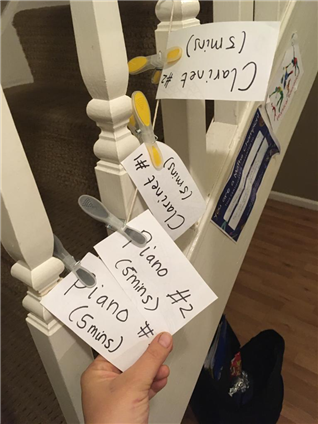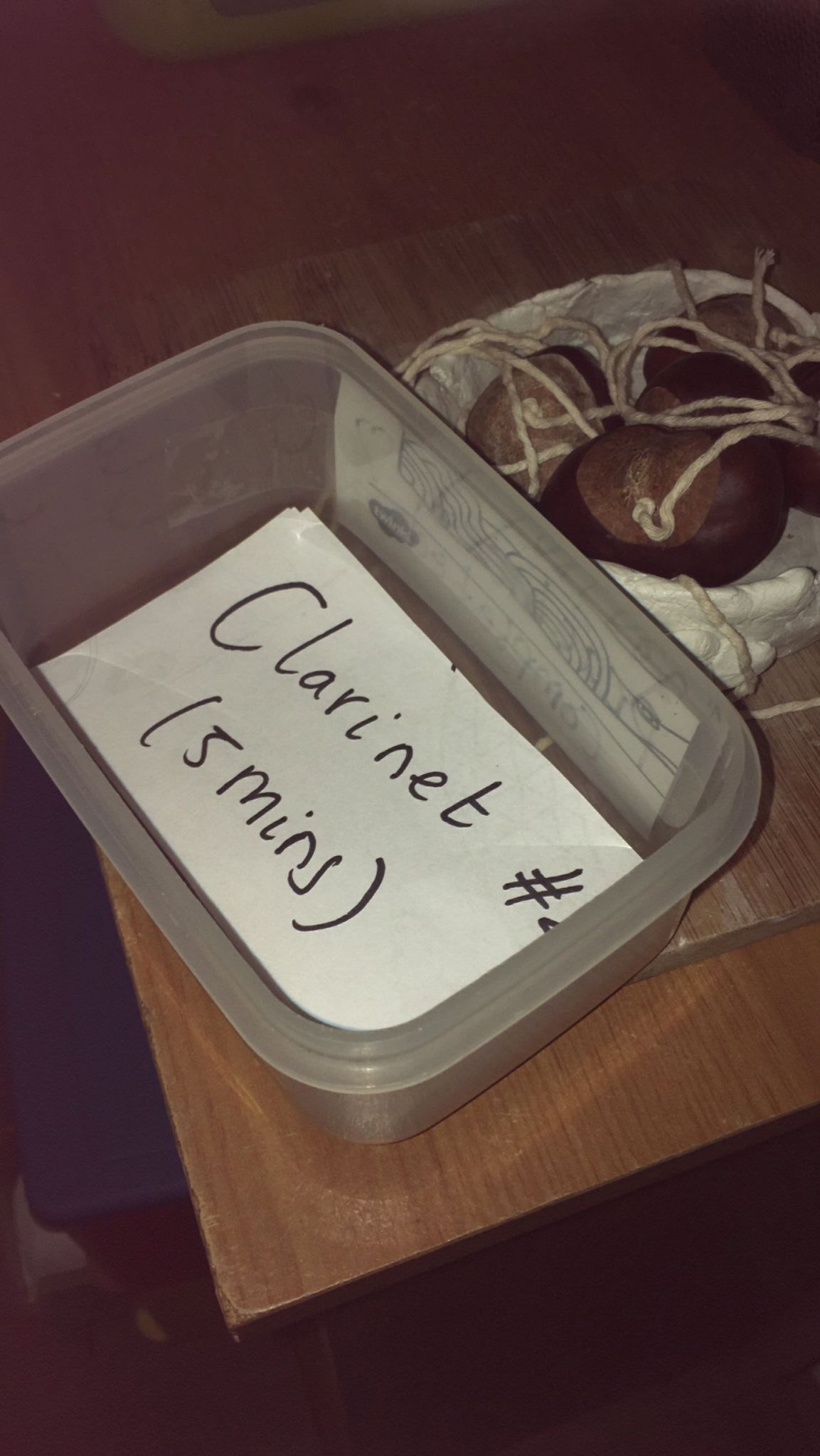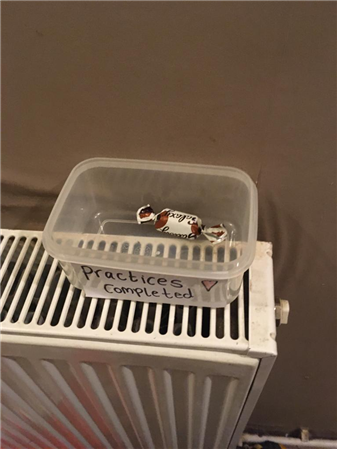I have never yet met an 'unmusical' child.
If you can answer yes to the points below, your child will do well.
1. They particularly enjoy music and they're curious about learning how to play an instrument.
2. You can commit to supporting them with short practice sessions between lessons (you don't need any musical experience to do this).
3. You can provide an instrument to practice on between lessons (I run a low-cost loan scheme for all instruments except piano).
4. You can make sure they always have their instrument (not pianos obviously) and music folder, including practice diary, with them for their lesson.
Creating Practice Time
Children who play their instrument between lessons arrive at their next lesson feeling confident and curious.
I have taught hundreds of pupils of all ages over the years and it is very clear: the brilliance I can produce during their time with me is not determined by how talented they seem to be at the start of learning, it is determined by their practice habits.
Playing an instrument is a mentally challenging activity. You're child has had a long day at school, working their socks off and now we're asking them to give us more! They are going to need us to hand-hold and provide the structure.
How Much Practice?
There's no one-size-fits-all answer. You know your child best and must help them to choose what works for them and your family timetable. Use this guide only as a starting point.
4-5 years
A few children will cope with regular, very short practices at this age. If that's not your child, it's fine, it's normal. Emphasis should be on enjoying their lessons and their instrument. See the note below on playing for pleasure.
After school on the day of the lesson (they will start to forget the following day) ask them to show you what they did today or if that's overwhelming for them, they can sing the song or say the rhyme we're working on. It's fine if they won't show you, just read the practice diary with them, ask them to show you the page in the music book or let them play/sing anything that interests them, even if it's not in their book. What matters is the routine and that they notice you being consistently interested.
Young children will often start a practice with briefly crashing about on their instrument, which then evolves into something more structured. This is your child getting their wriggles, jiggles and busy thoughts out of the way so they're ready to focus and do something difficult. Essentially, they are inventing their own warm-up. It often flows into creative play that is improving technique, co-ordination and exploring expression and composition, all without our intervention. For particularly wriggly children, many of my lessons start this way while I organise the music, stand etc.
6+
By this age, most children can cope with regular practice. 5 minutes a day/3 times through a song, 3-7 days a week, a habit like brushing teeth.
10-11 years
By this time with the right structure at home, most children can consistently manage 5 x 10 mins or 3 x longer practices.
Remember that playing for pleasure is important and valuable practice too. Repeating old favourites, working things out from memory and seemingly random twiddling around on the instrument are great ways to improve technique and co-ordination, improve aural skills and develop composition skills. And it's fun! It's the whole point of learning!
It's important as the child gets older that they consistently follow the instructions in the practice diary but they still need time to play for pleasure too.
Understanding Your Childs' Practice
Music teaching and our understanding of how musical skill develops has moved on a lot since in the last 20 years. Much more emphasis is now placed on developing a strong musicianship foundation first, so practice instructions might not be what you expect.
1. Train your child to read the instructions carefully, even if they think they remember what I wanted.
2. Come and view a lesson. Parents are welcome anytime to sit in on a home lesson. School parents need to let me know beforehand so I can let the office know to expect them and I can timetable a little extra time for any questions afterwards.
3. If my instructions aren't clear in the practice diary (it does happen sometimes!) please message me.
Practice will often include a short singing task. Singing is IMPORTANT. It's a short cut to developing a lot of other musical skills. (I have never had a child I couldn't teach to sing in tune, as long as they practiced what I set).
Encouraging Independence



A parent came up with this clever solution to help her child become more independent and accountable for managing her practice times. The child chose her own practice times (Mum made some initial suggestions) and moved one ticket to the tub after each practice. With a small chocolate incentive for four completed practices, the hitherto reluctant child quickly worked out her favourite days/times for practice. Using the peg/tub system, the habit stuck.